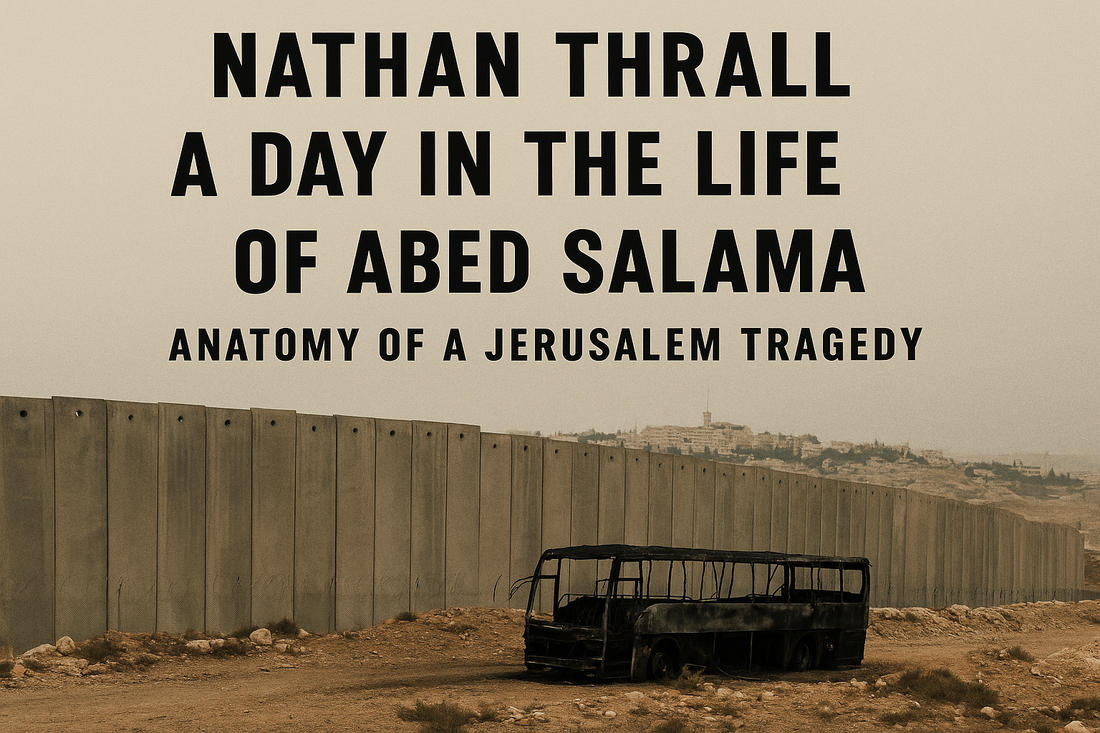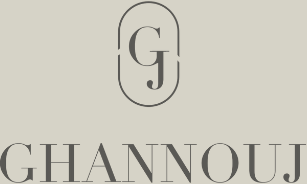
Share
A Day in the Life of Abed Salama by Nathan Thrall: A Devastating True Story of Occupation and Loss
This Unforgettable Book Exposes the Hidden Cost of Israeli Apartheid Through One Father’s Search for His Son in Jerusalem
Imagine, if you will, a single day. A Tuesday. Mid-February. You rise, zip up your child's jacket, hand him his lunchbox, and say the customary be-good-at-school incantations. It is an ordinary day, you tell yourself, until it isn't.
Nathan Thrall's "A Day in the Life of Abed Salama " is a rare work that both informs and profoundly resonates with the reader. It delicately guides you through the life of Abed Salama before plunging you into the harsh reality of lived atrocity. Despite its slim appearance—a mere sliver of a book—it holds within its pages not just a tragedy but the entire system that perpetuates such tragedies.
The title suggests simplicity—a portrait of a man, a moment. But the truth is murkier, more vast. Thrall, with the precision of a surgeon and the storytelling instincts of a master dramatist, unspools not just Abed Salama's day but the haunted sinews of a place where time is not linear but layered—crushed under occupation, punctuated by checkpoints, stalled by bureaucracy, and scarred by memory. He zooms in and out—panoramic one page, intimate the next—until you are dizzy with names, relationships, betrayals, kin, comrades, and collaborators.
Yes, the book is sometimes hard to follow—not due to any flaw in the writing, but because this is the reality of life under occupation: disjointed, fragmented, and impossible to hold in a single frame. One moment, a boy named Milad is bouncing in his seat on a field trip bus; the next, we are with his father, Abed, searching for his charred body in a bureaucratic maze where no one is accountable, and grief is a private luxury.
The crash itself—horrific, yes—is not even the most chilling part. It is the silence afterwards. The absence. The indifference. The Israeli authorities do not send firefighters. They do not open checkpoints. They do not keep a register of which child is sent to which hospital. In any other context, this might be referred to as criminal negligence. Here, it is policy.
One passage in particular lingers like smoke in the lungs: a group of Israeli teenagers, learning of the deaths of five Palestinian kindergarteners, express delight "from the bottom of their hearts." No shame. No filtering. Just a raw, unmasked joy in the suffering of others. It was a horror, but made worse by our knowing look toward a media and international system that yawned and turned the page.
Thrall doesn't shout. He doesn't editorialise. He doesn't need to. He lays bare the facts: the occupied and the occupier. The roads are forbidden to some and free for others. The homes were built on land that once belonged to men like Abed, who now need military permission to visit the village of their childhood. The children who die and the adults who must identify their bodies by the burnt scraps of a t-shirt or a DNA swab. He paints a portrait of a place so morally upside-down that Kafka himself might have called it a bit much.
If there is a central question in this book, it is not how this tragedy happened but why it keeps happening. And lurking beneath that is something even more uncomfortable: could it have been allowed to happen? The Israeli state, ever efficient in matters of surveillance and security, becomes miraculously incompetent when Palestinian lives are on the line. A chilling coincidence. Or something darker still? This book does not shy away from asking these difficult questions; through these questions, the reader is invited to engage critically with the narrative.
Yet, amidst the anguish, the story is also a testament to the human spirit's resilience. It chronicles humanity's unwavering grasp on dignity in the face of systematic dehumanisation. It tells the story of fathers who refuse to give up their search, strangers who risk their lives to save children, and people who endure not because they are saints but because they must.
This is not a book that offers a resolution. Nor should it. To do so would be to sanitise the truth. Instead, it thrusts you into the middle of the moral mire and leaves you there, blinking, wondering how we ever convinced ourselves this was normal. However, it also calls on you not to accept this as usual, but to question, engage, and act. This is a book that demands a response, empowering you to make a difference.
Short? Yes. But it will sit heavy in your chest long after you've placed it back on the shelf.
Read it. Then, reread it. Each reading will unveil new layers of truth and provoke more profound reflection, deepening your understanding and enlightening you about the complex issues it addresses.
